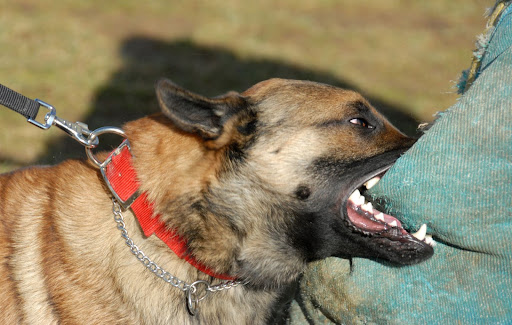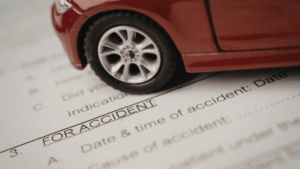
Being attacked by a strange dog can be both shocking and scary. No one ever expects to get bitten by a dog. Although most dog bite injuries are usually relatively minor, there have been many cases of very serious dog bites where the victim suffered extensive injuries. Depending on the size of the dog and the voraciousness of the attack, a victim could suffer from significant muscle tears, skin lacerations, and broken bones—all requiring a lot of medical treatment. Many of these injuries even require multiple surgeries to first repair the damage, followed by cosmetic surgeries to lessen the disfigurement. But immediately getting proper dog bite treatment is vitally important to make sure the attack doesn’t cause long-term problems.
The dog attack lawyers at Brett McCandlis Brown & Conner, PLLC, have been representing dog bite and dog attack victims for decades. We have the skill, knowledge, and resources to make sure you receive the full amount of compensation you deserve. We will help win your unpaid medical bills, lost wages, and compensation for the pain and suffering. This includes compensation for any permanent disfigurement you may have from the attack.
First Steps to Take After a Dog Bite
The first step you should take after being attacked by a dog is to seek immediate medical treatment for the dog bite. Don’t just assume it will heal on its own. One of the major issues that dog attack victims face is infection. If you don’t get immediate dog bite treatment, you could run the risk of getting an infection. A serious infection can require significant treatment and even a hospital stay.
Another reason you should get immediate treatment after a dog bite is the risk of contracting rabies. If you don’t know the dog or its owners, it could have rabies and you will have no way of knowing whether the animal was infected. You do not want to mess around with rabies. It could be fatal. The sooner you begin rabies treatment the better, especially if you can’t locate the dog to get it tested for rabies.
Seek medical treatment even if the wound is small, such as a small puncture wound or scratch. There is always the risk of serious infection. Here are the signs that you might be suffering from an infection:
- Redness, swelling, draining pus, or pain around the wound;
- Fever;
- Diarrhea or stomach pain;
- Vomiting;
- Headache;
- Confusion;
- Muscle or joint pain; and
- Blisters around the bite within hours of when it occurred.
If you ignore the dog bite, it could potentially turn into something significant. What could have been just a few trips to the doctor could wind up being a few nights’ stay in the hospital.
Should You Report the Dog Bite?
If you were attacked or bitten by a dog, immediately report it to whatever government entity or agency deals with this issue. Most towns and cities have dog wardens. A dog warden’s job is licensing pets, as well as dealing with loose or stray dogs. They also keep track of whether a particular dog in their jurisdiction has a violent disposition. A good reason to report the dog (assuming you know which dog bit you and who the owner is) to the dog warden is to make sure that there’s a record that this dog has bitten people. You also may find out that the dog has bitten people in the past and has a propensity to bite. This fact can actually help you later on if your case gets put into litigation. You can demonstrate that the owner knew that their dog had bitten people in the past, but failed to restrain their dog to protect innocent people.
Another reason to report the attack is that there will be an official record of it. The dog warden will create a report, detailing the incident. Also, the dog warden would normally do an investigation and talk to the owner of the dog. The dog warden may even issue a citation to the dog owner indicating that they violated municipal dog ordinances. This also would help you with any future litigation that might be necessary to win the compensation you deserve.
Does Washington Follow the One Free Bite Rule?
Many states have a dog law that’s commonly referred to as the “one free bite” rule. This rule basically states that a dog owner gets one free bite from their dog before they are held liable for any injuries their dog causes. This means that if their dog bites someone for the first time, the owner won’t be held liable. Only after that first bite will the owner be responsible for the injuries. If the dog bites more than one person, then the owner is presumed to know that their dog has a propensity for violence. But this rule is slowly being changed throughout the country. Washington does not follow this rule anymore.
The current dog law in Washington is that it doesn’t matter if the owner knew or should have known that their dog might bite someone. The victim doesn’t even have to prove that the dog owner was negligent in restraining the dog. Washington’s dog law is considered a strict liability law. The law provides that the owner of any dog that bites a person, while the person is lawfully on the owner’s property or lawfully on some other property, shall be strictly liable for damages. The only exceptions are if the victim was trespassing at the time of the attack or if the dog was a police dog carrying out its professional duties at the time of the incident.
Contact the Washington Dog Attack Attorneys at Brett McCandlis Brown & Conner if You Were Injured in a Dog Attack
Being attacked and bitten by a dog can be a very traumatic experience. The injuries can be severe and permanent. If you don’t get immediate and proper dog bite treatment, your injuries could be much worse. The recovery can last much longer. You don’t have to go through this alone. Contact the legal team at Brett McCandlis Brown & Conner, and let our knowledge, experience, and resources help win the injury compensation you deserve.


